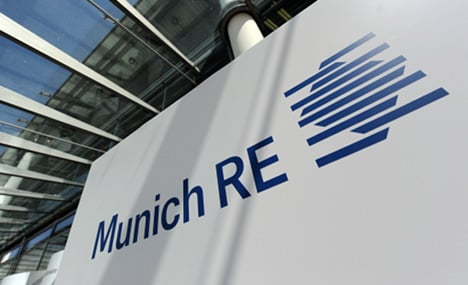The result was well above an average analyst forecast of €650 million compiled by Dow Jones Newswires and Munich Re shares posted solid gains in early trading on the Frankfurt stock exchange.
Munich Re said that to ensure clarity in its figures it had had based the value of Greek bonds it owns on their market level as of June 30, resulting in a total charge of €703 million that cut €125 million from its net profit.
The group was boosted however by price increases in some reinsurance segments, chairman Nikolaus von Bomhard said, and by improved earnings in its primary insurance activities.
Gross premium revenue gained 9.2 percent from the second quarter of 2010 to €11.97 billion but this was less than the €12.05 billion expected by analysts.
A statement said Munich Re still expects “to close the year 2011 with a profit,” although its original target “can no longer be achieved” given heavy losses in the first quarter.
Natural catastrophes early this year, especially earthquakes and tsunamis in New Zealand and Japan, have already led Munich Re to declare 2011 its worst year ever.
It now faces charges stemming from the eurozone debt crisis but Munich Re said that debt issued by Greece, Ireland and Portugal represents only four percent of its bond portfolio, which is worth more than €70 billion.
With regard to 2011 as a whole, von Bomhard stressed that “despite the exceptionally heavy claims burdens, we aim to achieve a positive result for the year.”
That would hold true “even if there were additional major losses in the further course of the year, provided these did not significantly exceed the average figure to be expected,” the statement said.
The Munich Re chairman underscored the benefit of building up its primary insurance activities which provide “stable earnings and balances the burdens that occur in reinsurance due to high claims costs for natural catastrophes or major industrial risks.”
He added that “this year especially, our integrated business model is again proving its worth.”
Munich Re shares showed a gain of 1.93 percent to €99.70 in early Frankfurt trading, while the DAX index on which they are listed was up 1.22 percent overall.
AFP/mdm



 Please whitelist us to continue reading.
Please whitelist us to continue reading.
Member comments